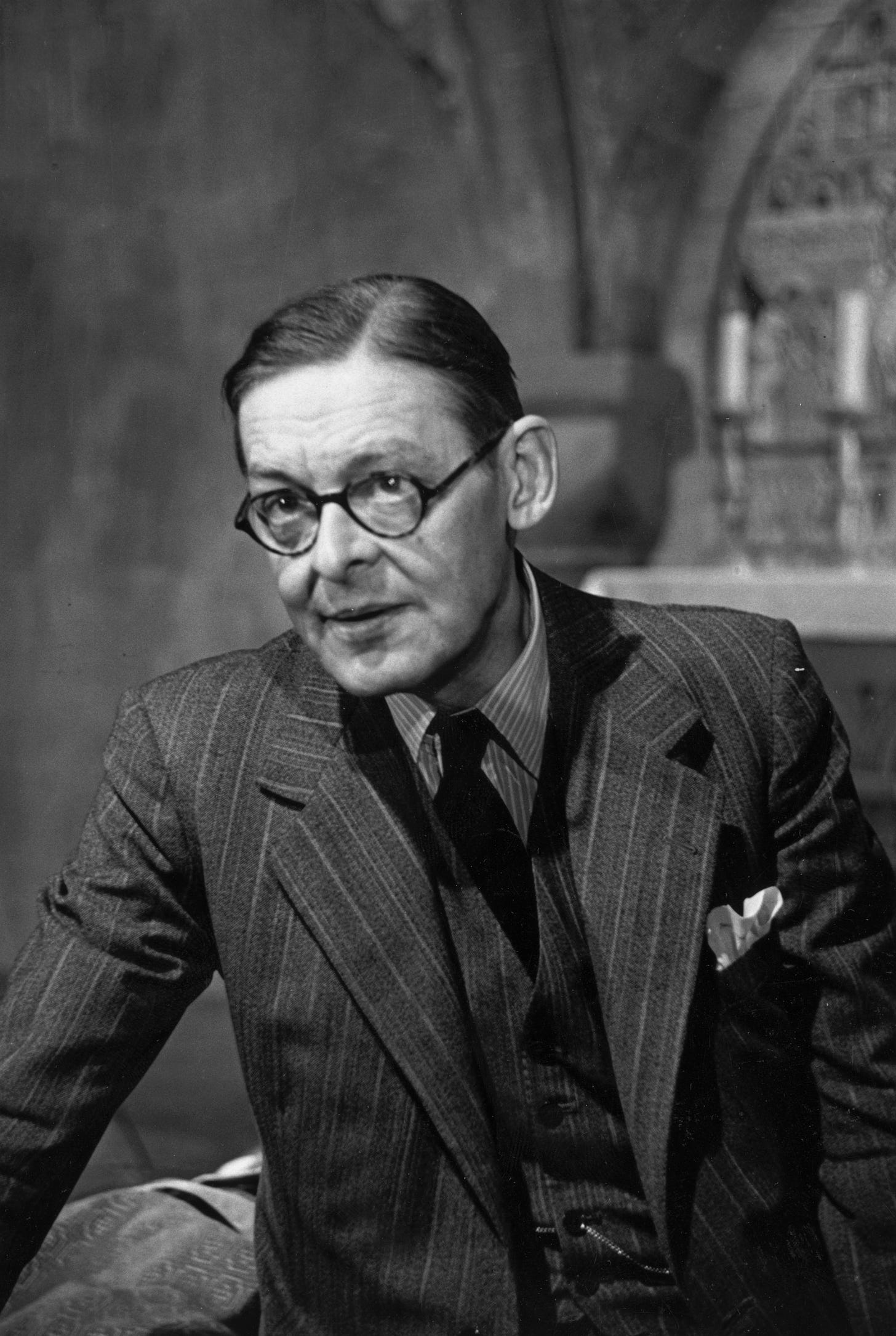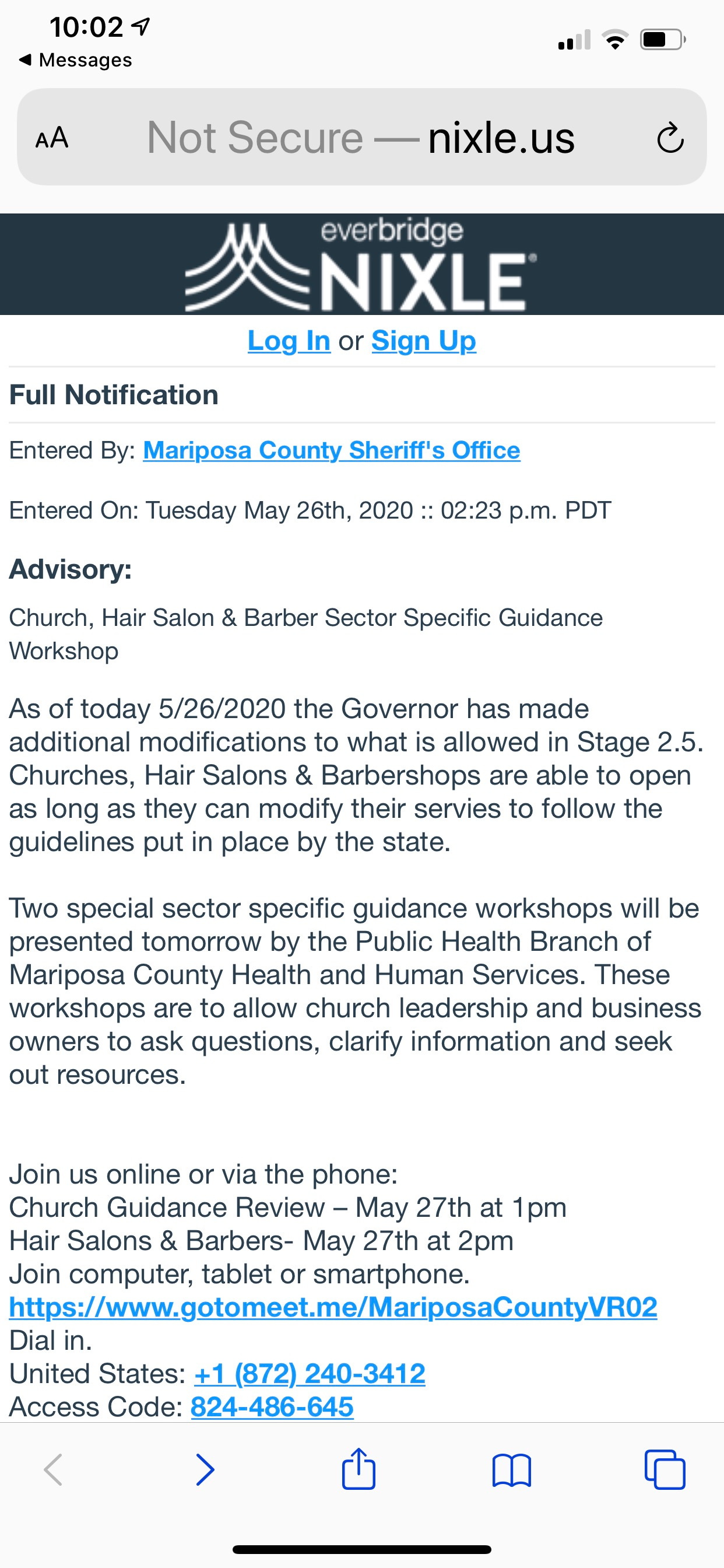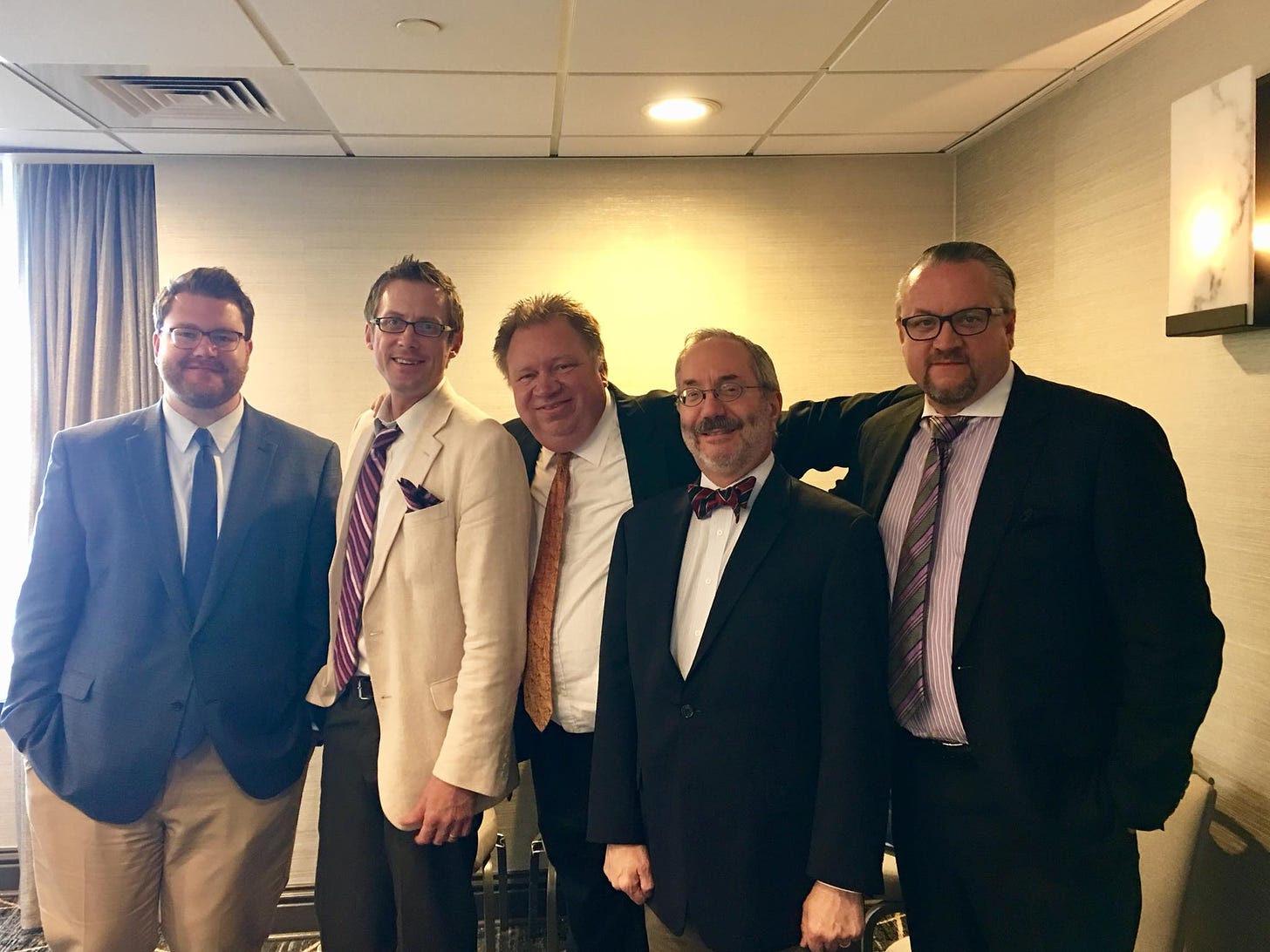We Are the Hollow Church
Amid the COVID-19 drama the church has displayed hollowness in failing to bolster the culture at the very time our world needs a pithy, substantial, muscular church.
Dear friends and supporters:
T. S. Eliot was arguably the most prominent English-speaking Modernist poet. He was a Christian, and in fact wrote a thoughtful book defending Christian culture. His was a strange Modernism, because he was a substantive traditionalist who employed modernist literary techniques. Aside from “The Wasteland,” his most popular poem was likely “The Hollow Men,” a jeremiad on what it means to be a truly modern person. His depiction is both memorable and grim, right from the first lines:
We are the hollow men
We are the stuffed men
Leaning together
Headpiece filled with straw. Alas!
Our dried voices, when
We whisper together
Are quiet and meaningless
As wind in dry grass
Or rats’ feet over broken glass
In our dry cellar
Shape without form, shade without colour,
Paralysed force, gesture without motion;
Those who have crossed
With direct eyes, to death’s other Kingdom
Remember us — if at all — not as lost
Violent souls, but only
As the hollow men
The stuffed men.
To Eliot, modern man in his loss of orthodox Christianity, of historic roots, of social hierarchy, of family unity, of a reflective life, has hollowed himself out. He has drifted toward meaninglessness and nihilism. He is interested only in what Francis Schaeffer later would call “peace and prosperity” and willing to sacrifice anything for them. In abandoning his past, man abandoned what made makes him what he is, and then he must remake himself with so few modern materials that he is left hollow. This hollowness in time infected every area of contemporary life, and we swim in it daily.

Modernism was a particular phase in the church of the early 20th century, just as it was in art (Picasso), architecture (Gropius), literature (Joyce), music (Schoenberg), and theatre (Brecht). Its credo was “Make it new!” Every age must have its own unique substance and style. We cannot be ourselves until we sever ourselves from the world we inherited.
For the church modern, this meant throwing off inherited orthodoxy and adjusting to the brand, spanking new scientific age privileging materialism and dialectics, evolution, and a world in flux. Anything historically fixed was suspect (except, apparently, for the new idea that anything historically fixed was suspect; that was meant to be unchanging). This is where theological liberalism came from.
The modernist fundamentalists
But it would be a mistake to assume that the liberals were the only church Modernists. In their own way, many of the orthodox embraced Modernism in the form of fundamentalism. The fundamentalists, strange as it may seem, were Modernist in their unique contribution of reducing the robust Faith to a few “fundamentals,” sequestering the church from the great cultural issues of the time, and adopting the novel theory of dispensationalism that necessitated a predestined cultural failure of the gospel in the new covenant era. In these ways the fundamentalists created their own approach to the Faith cut off from the Christian past just as the liberals had. Liberals and fundamentalists were both Modernists.
This fundamentalism birthed mid-20th century evangelicalism, which has become the leading conservative Protestant expression in the West. Even the magisterial Reformation churches (Lutheran, Reformed, Anglican) were infected by the pervasive evangelicalism.
This wing of the church modern is now normative Christianity, and it has been on graphic display during the COVID-19 drama. To question this conservative Modernist normativeness seems so strange as to be heresy. But it is the church modern that is the innovation, and its hollowness contributes to its failure to bolster the culture at the very time our world needs a pithy, substantial, muscular church.
Post-Christendom Hollowness
The church modern has forgotten its God-appointed calling in Jesus Christ’s mediatorial rule in the earth. The church is not an extension of the Incarnation, nor is it identical with the entire Kingdom of God, but it is a central institution by which Christ rules in the earth. Paul makes this plain in Ephesians 1:19–23 where he writes of
… the exceeding greatness of His [God’s] power toward us who believe, according to the working of His mighty power which He worked in Christ when He raised Him from the dead and seated Him at His right hand in the heavenly places, far above all principality and power and might and dominion [words for the angelic ruling powers and earthly politicians], and every name that is named, not only in this age but also in that which is to come.
And He put all things under His feet, and gave Him to be head over all things to the church, which is His body, the fullness of Him who fills all in all. (Emphasis supplied)
In their Holy Spirit-effectuated union with their risen Lord, Christians are presently (and not merely potentially) seated with Christ as he rules the cosmos. We are seated there as individuals, but the Father has subordinated all things to the Son, and granted him as the head his church as the body, “the fullness of Him who fills all in all.” Not just individual Christians, but the church.
Paul writes in 2 Corinthians 5:20 that the church officers “are ambassadors for Christ, as though God were pleading through us: we implore you on Christ’s behalf, be reconciled to God.” The church is God’s diplomatic corps to the rebellious world, demanding that they surrender their autonomy and be reconciled to the God whose Son loved them and shed his blood to take away their sin and sinfulness and overwhelm the cosmos with his loving, righteous rule.
Among other things, this means the church is a ruling body in the earth, and clearly not only over it members, but over the entire cosmos. The church in Christendom knew this. They knew that since Christ is the head and we as the church are his body, to say that we rule only over the church itself is to speak redundant nonsense and to say that he rules only over the church itself denies his Lordship. The biblical truth of the ruling church helps us understand the promises to the churches of Revelation that if they are faithful, they will reign with their Lord. John does not mean in the ethereal mists of a Platonic nirvana, but in the present cosmos.
The Power of the Keys
The conventional (and biblical) way to describe this rule is the power of the keys (Mt. 16:18–19). God delegates to the church the authority to open and close the doors to the Kingdom, the rule, of God in the earth (subject to his word, of course). The church declares those who objectively stand as kingdom subjects as well as those who are the kingdom outlaws, in desperate need of repentance and grace.
The church is the guardian of the truth, of orthodoxy, of the gospel. The church interprets the word to the world. The state is authorized with the power of the sword, suppressing crime (Rom. 13:1–7), but the church wields the power of the keys, including the keys unlocking biblical truth to the world, including politics.
The Westminster Confession of Faith (1647) expressed this task when it declared (ch. 31, sec. 2):
[M]agistrates may lawfully call a synod of ministers, and other fit persons, to consult and advise with, about matters of religion….
As proof it offered, in part, Isaiah 49:23,
“… Kings shall be your foster fathers,
And their queens your nursing mothers;
They shall bow down to you with their faces to the earth,
And lick up the dust of your feet.
Then you will know that I am the Lord,
For they shall not be ashamed who wait for Me.”
In vital social matters, politicians should seek the counsel of the church(es), who must instruct them in biblical teaching relevant to the topic under consideration. It was widely understood in Christendom (and not only among the Calvinists) that the church must instruct the civil magistrates (politicians) in their obligation to enforce God’s moral law against crime as well as provide guidance and wisdom to politicians in crises like today’s COVID-19.
The fact that this assertion would occasion disbelief and outrage today (even in the “conservative” church) shows how ignorant the church modern is and how far it has drifted from its biblical and historic calling. The church modern is so hollow in its understanding of the sociocultural aspects of the Bible and of its own obligation to instruct politicians that it would never have dreamed of providing biblical truth to the president and governors about what they should do — and not do — in the face of COVID-19.
The church modern, the post-Christendom church, is hollow, and it cannot govern by wielding the power of the keys because it does not even know what this means. I’ve even heard pastors and theologians relish the hollowness of the post-Christendom church, assuming that the church can truly fulfill its calling as a weak, effete, anorexic, marginalized interest group among many others, since it will appear “humble” and not demanding and imperialistic. This was the vision of the radical (anabaptist) reformers, not the magisterial reformers. This attitude reflects a fatal ignorance of the high calling of Christ’s body, and it surrenders the cosmos to secular and other contra-Christian rule under the veneer of pious mush. Pride is indeed a damning sin, but for the church to refuse to stand for the imperial Christ is not humility, but rebellion, which ironically is pride that we know better than God how he wishes to rule his world.
The church does not exist for its own pleasure and flourishing but to expand the rule of the risen Lord in the cosmos. The church modern is incestuously hollowed out. The church biblical is cosmos-reclaiming.
Please consider a tax-deductible donation to CCL via PayPal or Venmo if you can. God uses you to keep us going — and expanding.
Churches, Hair Salons, and Barbershops
Last Monday I received the alert below from our county sheriffs’ department:

Even in our rural, deeply red California county, churches are classed with hair salons and barbershops as requiring legal guidance on gradual reassembling. There is nothing unique about the church in the eyes of the modern Political Class, no special dispensation for the church of Jesus Christ, no perception of its vital governing role in culture. It is simply one of a number of social institutions meeting a service that includes high human contact assembly and therefore a potential threat during COVID-19 time. The notion that politics should make extraordinary measures to open an extraordinary institution, that politicians would be “foster fathers” and “nursing mothers” to the church, would simply not occur to the sheriffs’ department, or almost anybody else, including the (hollow) church. This is not primarily the fault of the Political Class, but the Ecclesial Class.
Separation of Church and Society
This hollowness is the latest node in a long decline, which the church itself invited. The medieval Roman church manifested a strong, independent, ruling character. While the Middle Ages did not include a union of church and state, the two were often intertwined as divine public institutions ruling society. The Reformation did not unravel this intertwining, but it gave greater authority to the state to counter the comprehensive European social authority of Rome. The 18th century Enlightenment infected even orthodox churches, and as the churches gradually made their peace with heterodox rationalism (Deism, Transcendentalism, Unitarianism), the state grew strong and bold, while the church grew weak and timid. The 18th century Church of England was cold and dead and moralistic, and dead scholastic orthodoxy pervaded Protestant churches on the continent.
Separation of church and state
The United States broke with the church-state intertwining. It implicitly recognized sphere sovereignty: family, church, and state each had its own unique and independent calling on which the others could not impinge. This necessitated a valid separation of church and state, but not a separation of the state from God, an altogether different scenario. Both church and state stood under God’s authority, ruling in the cosmos under that divine authority.
Separation of church and society
The 19th century witnessed an accelerated departure from the Christian Faith almost everywhere in the West. Romanticism, Darwinism, higher criticism, Marxism, and nihilism (Nietzsche) gutted Christian culture. By and large the church offered feeble resistance, often in the form of “classical” (revived ancient rationalist) apologetics that did not perceive the profound worldview differences between the new thinking and the old thinking. Christians assumed they could vanquish the newer thought by accepting the presuppositions of that thought. They were fatally mistaken. Aside from the worldview reformational thought of the Netherlands (Abraham Kuyper, Guillaume Groen van Prinsterer), most of the church made concessions to the deepest assumptions of the alleged “neutral” thought of the Modernists. Because they did not engage Modernism at the deepest level, they lost the apologetic, intellectual, cultural, and later institutional battles. They retreated into their churches to practice a largely quietist religion, stressing personal nearness to God and drastic distance from his world.
In this way, the paradigm drifted from separation of church and state to (in Thomas Molnar’s language) separation of church and society. The church modern became the church hollow, finding its place alongside hair salons and barbershops.
Conclusion
The church modern must again become the church militant. How?
First, church leaders must learn (or re-learn) the truth of the church’s ruling authority in the cosmos. She must repent of her narrow, inside-the-four-sanctuary-walls vision that dismisses her responsibility to the wider culture. Local churches, no matter their differences, should work together to present a united testimony to politicians (and others), pointing out the biblical requirements of every other institution and sphere of life. The fact that early attempts will be futile and even ridiculed by a godless society is irrelevant. When the church finally recovers and acts on its God-given authority, God will begin to bless that authority.
Second, the church must start taking itself seriously as a thick, robust body. The hollow church (the thin church) must gain girth and substance by refusing the anorexic diet offered by modernity. This means it must quit chasing every motivational, organizational, musical, and even branding fad and turn to the Bible to provide not only its themes, but also its norms.
Third, and finally, the church must get over its inferiority complex as just another social gathering venue like the hair salon and the barbershop. The church meets together every Lord’s Day to transact big business, not to provide entertainment, but to worship the Lord and prepare to conquer the world for Christ the King.
If this sounds frightening, that’s because it should. The church is the Lord’s ruling body, and it should be feared (Ac. 5:11). The church should be feared not because it is fearsome in and of itself, but because of whom it represents — Jesus Christ, King of kings, Lord of lords.
Only when the church recovers and acts on her true biblical calling will she fill in her present hollowness with godly substance and meaning and power, a great force to be reckoned with in the world.
Personal
Because of the COVID-19 meeting cancelations and postponements, I’m getting caught up on writing and publishing projects. This is one of the most rewarding ones:

You can order the e-book here. You can order the print copy here.
Here’s a photo from a CCL symposium in recent years, held in San Francisco. The presenters are, from left, Dustin Messer, Brian Mattson, yours truly, Jeff Ventrella, and David Bahnsen. Everyone attending is invited to join the discussion.
This year’s symposium will be an evaluation of the election, and held on Saturday, November 7. More information coming.

Next week I plan to write on “Christianity Without Religion.”
Thank you for your friendship and support. I need you.
Yours for the King,

Founder & President
My Amazon author page (print and digital) is here. You can find my sermons and lectures at my YouTube channel. Sign up to get my blog updates here. Here’s my Twitter feed. If you want to get the free exclusive hard copy publication Christian Culture, please send me a Facebook private message. The CCL phone number is 831-420-7230. Finally, the address is:
CCL, P.O Box 100, Coulterville, CA 95311
If you know of anybody who might enjoy this newsletter and subsequent ones, I’d be grateful if you asked them to sign up here.
List of Coronavirus-related posts, podcasts, and video:
“What the COVID-19 Drama Has Revealed About Our Institutional Character”
COVID-19 and Legality: An Interview with Jeffery J. Ventrella
COVID-19 and Economics: An Interview with David L. Bahnsen
COVID-19 and Theology: An Interview with Brian G. Mattson
“COVID-19 and Our Crisis of Liberty”
“Thinking Christianly During Covid”
“COVID-19, Politics, Church, and Culture”
“On Backing Into Our COVID-19 Convictions”
(Dr. Ardel Caneday and I address vital questions. This was a succinct, wide-ranging conversation discussing everything from the interpretation of Romans 13, radical 2-kingdom theology, the nature of the church, whether the church should cancel public worship, whether the civil magistrate is bound to God’s law, the Founders’ view of human nature, the diabolical basis of coronavirus fear, and much more. The password is: 1j$@^=S#)
God’s Law, Coronavirus, and Love:



